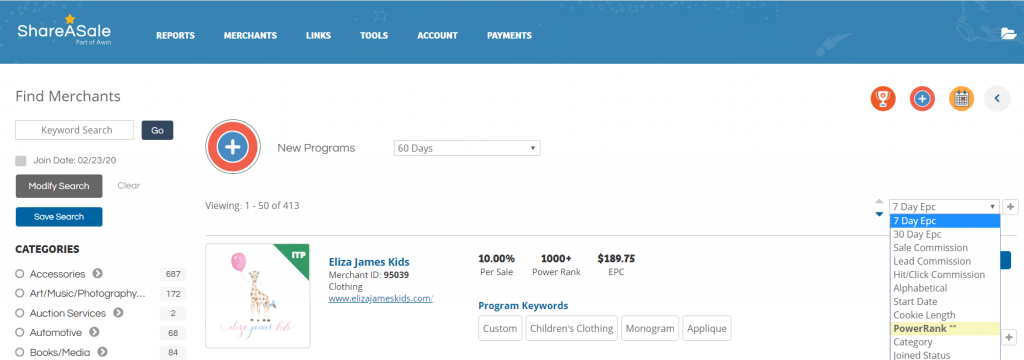Have you just started your business or are preparing to get a new product or service on the market and you’re considering launching an affiliate program to help spread the word? It could be a great idea, as long as you stay away from three common affiliate program misconceptions:
- The affiliate program can be used to test products, services, or specific offers.
- If you launch an affiliate program, you no longer need to invest in marketing.
- The affiliate program will grow by itself without requiring further investments of time, effort, and other resources
Let’s take these affiliate program misconceptions one by one and see what they mean and what you should do in order for your affiliate program to reach its full potential.
1. Using Affiliates to Test Grounds
In Affiliate Program Management: An Hour A Day, our very own Geno Prussakov quoted an interesting definition of affiliate marketing (given by Chris Sanderson): “The art of doing a merchant’s marketing better than they can, and profiting from it”. This definition highlights two important aspects:
- Affiliates can and often will market your products or services better than you could.
- They will only do it only as long as they can profit from it.
 So, if your idea is to use affiliate marketing as an experiment to see if your products or services could sell or not, don’t. As Todd Farmer emphasized a while back, “affiliates are not guinea pigs”! You should only turn to them after you have made sure that your products or services are competitive and your website runs and converts well.
So, if your idea is to use affiliate marketing as an experiment to see if your products or services could sell or not, don’t. As Todd Farmer emphasized a while back, “affiliates are not guinea pigs”! You should only turn to them after you have made sure that your products or services are competitive and your website runs and converts well.
Your affiliates’ job, if they accept it, is to send you traffic. Your job is to convert that traffic into sales and profits for both you and your affiliates. And just in case you have doubts, know that affiliates review merchants carefully before joining their affiliate programs and will notice any conversion issues, traffic leaks, and any other details that could hinder their performance.
So do your testing before launching your affiliate program, and only launch after you’ve made sure that:
- Your products or services provide value for the money
- Your website loads fast, runs well, and can converts traffic into sales
- You’ve eliminated or took measures to track any traffic leaks such as: phone numbers, live chat, AdSense, links to third-party websites, etc.
If you don’t, not only will your affiliate program fail but you will turn your back on all the benefits that affiliate marketing brings about.
2. Doing No Other Marketing
Are you hoping to have your products or services marketed by affiliates and avoid spending money on marketing them yourself? As Geno explains in his post on Affiliate Program: Good Way to Market a Business or Product the best way to tell if an affiliate program can help you market your products or services is to assess if there is demand and medium.
This implies knowing the market and your products or services’ position and having already sold online, which is almost impossible without some marketing. Moreover, unless you have some reputation, chances are no affiliates will invest time and effort into promoting you.
If you have doubts, check out this post teaching publishers to choose which affiliate programs to promote based on:
- Competitors
- Commission level and EPC (earnings per click)
- Product quality
- Vendor support
- Vendor reputation
Moreover, affiliate marketing networks like ShareASale allow publishers to filter merchants by EPC, their PowerRank, commission levels, etc.

So do your testing and invest some time, money, and effort, into branding so as to lay a solid foundation for your affiliate program and meet the above selection criteria. Once you’ve done that, it will be up to you to decide if to invest in additional marketing or leave marketing to your affiliates.
As Geno repeatedly emphasized, affiliate marketing is not a marketing channel. It is actually omnichannel marketing and works great both by itself and combined with various marketing solutions. All it needs is a solid foundation that we’ll discuss below, immediately after reviewing the third common misconception.
3. Underequipping the Affiliate Manager
Simply handing the affiliate program’s steering wheel to the affiliate manager is no way to go… If you want the affiliate program to succeed, your participation isn’t optional, but mandatory!
This would be difficult to express in better words than this AM Navigator client did it in their review for Clutch:

Launching an affiliate program is not enough to see results. You cannot run it on autopilot, and even hiring an affiliate program manager or an affiliate OPM agency may not be enough. You need to continue with your own marketing and you also need to work with your affiliate program manager and provide them with what they need to drive results.
Common examples include:
- Targeting information (ideal buyer profile, locations, keywords, etc.)
- Ideal affiliate profile and restrictions (make it clear what type of affiliates you want in your program and what type of affiliates you would like to keep out; this list of 20 affiliate types should come in handy)
- Best marketing channels (where did your best results come from: paid ads, social media, email marketing, blogging, etc.?)
- Creatives (read our in-depth guide to affiliate marketing creatives here)
- Advance notification of new campaigns, offers, and product launches (give affiliates enough time to prepare their own promotions and put up their links)
- Openness to inquiries, ideas, and suggestions and willingness to experiment and adjust (merchants, program managers, and affiliates should stay receptive to one another’s needs and ideas in order to drive results).
Now that we’ve clarified the common problems in approaching affiliate marketing programs, let’s review 10 best practices for laying the foundation for affiliate program success.
1. Competitive Products
 If your products (or services) aren’t competitive, they won’t sell, and your affiliate program will eventually fail, turning its launch into a waste of time and resources. So take a step back, leave your hopes for profit aside for a minute, and be honest: would you buy your products or services? Would you choose them over your competitors’?
If your products (or services) aren’t competitive, they won’t sell, and your affiliate program will eventually fail, turning its launch into a waste of time and resources. So take a step back, leave your hopes for profit aside for a minute, and be honest: would you buy your products or services? Would you choose them over your competitors’?
If you would, then you’re probably safe to consider launching an affiliate program. If you wouldn’t, how can you expect others to promote or buy them? You should take measures to improve your products or services first and only then consider launching the affiliate program.
Do spend the time studying the marketing and your immediate competitors. You can’t conquer a market you don’t know and you can’t beat your competition if you don’t know what they’re offering. It’s also important to assess where you stand in the big picture. This Guide to Affiliate Marketing Competitive Analysis may come in handy.
2. Unique Selling Proposition
No matter how high-quality or affordable your products or services are, if you really want to sell, you need to find that unique, important feature that will help you stand out among competitors. When your prospects can’t decide which offer to choose, this unique selling proposition should help tilt the balance in your favor.
3. Cohesive and Consistent Branding and Marketing
 From your company logo to your website, business cards, product packaging, and marketing materials, everything should send the same message, inspire the same vision, captivate, and engage. Use the same slogans, colors, and fonts, and be consistent.
From your company logo to your website, business cards, product packaging, and marketing materials, everything should send the same message, inspire the same vision, captivate, and engage. Use the same slogans, colors, and fonts, and be consistent.
You want to create a brand that people will remember, recognize, and appreciate, no matter from where they find out about it: your website, Google ads, your affiliates, TV or radio commercials, etc. Changes in spelling, fonts, colors, and logo could give the impression that you have no idea who you are and what you want.
4. Consolidated Online Presence
As explained above, when clarifying the three affiliate program misconceptions, you can’t have a successful affiliate program with a website that leaks traffic, loads slowly, or doesn’t convert. You can’t convince publishers to promote you and you can’t sell if online searches for your company name lead to dead ends or negative reviews.
It goes without saying that you should also be present on the most prominent social media platforms. Most of your buyers probably live online now, on Facebook, Twitter, Instagram, and so on, so reach out to them or at least let them find you in their environment.
5. Thoughtful Affiliate Program’s Launch
 This Step-by-Step Guide to a Successful Affiliate Program Launch will teach you everything you need to know. It is important to take your time, do your homework, and make the best decisions for each step. In affiliate marketing, it is better to do things right from the beginning than to have to go back and start all over again.
This Step-by-Step Guide to a Successful Affiliate Program Launch will teach you everything you need to know. It is important to take your time, do your homework, and make the best decisions for each step. In affiliate marketing, it is better to do things right from the beginning than to have to go back and start all over again.
Affiliates who promoted you and give up will think twice before putting up your links and banners again. Besides, the last thing you want is having to switch platforms, change tracking software, promise commissions you can’t afford to pay, or have an affiliate program that no one wishes to join.
6. Proper Affiliate Program Management
You can hire an affiliate program manager, work with an OPM agency, or have an OPM agency complement the efforts of your internal affiliate team. No matter your option, close management is a must and should be performed by affiliate marketing experts. Only they can make sure that your plans turn into reality and your program brings the results and value you hoped for.
The last thing you want is to entrust your brand’s reputation to unscrupulous affiliates (who will not hesitate to trash it in order to win a few bucks) or to pay a fortune on commissions for fraudulent transactions that are later canceled.
7. Clear Expectations of the Affiliate Manager
 While they may know more about affiliate marketing than you do, they should stay within the commission limits you establish, report to you regularly, consult with you when devising and enforcing the program’s rules and policies, and make sure their marketing efforts and your affiliates’ are consistent with yours.
While they may know more about affiliate marketing than you do, they should stay within the commission limits you establish, report to you regularly, consult with you when devising and enforcing the program’s rules and policies, and make sure their marketing efforts and your affiliates’ are consistent with yours.
But they can’t provide what you want if they don’t know what it is, so make it clear. This way, they won’t have an excuse when they cross the line, and you won’t have to wonder what had happened if you had expressed yourself more clearly.
8. Support of Your Affiliate Program
Did your program manager ask for new or personalized affiliate marketing creatives? They may have received a request from an affiliate or they may be trying to onboard an important publisher. If they recommend offering product samples, demo accounts, or additional discounts, it’s because they think it’s worth it.
Many publishers want to test the products and services they recommend. Offering them this opportunity may cost you but it could bring about hundreds, maybe even thousands of sales. That 10% personalized discount code may activate an affiliate or improve their conversion by 30% and keep them in your program instead of letting them move on to promoting your competitors.
9. Collaboration with Your Team & Affiliate Manager
 Excellent communication is vital to the success of your affiliate program. Make sure your team understands that and keeps your affiliate program in mind when making website changes or planning re-branding and marketing campaigns. The last thing you want is affiliate tracking downtimes, broken links, and affiliates giving up on you because you didn’t give them a chance to get more involved.
Excellent communication is vital to the success of your affiliate program. Make sure your team understands that and keeps your affiliate program in mind when making website changes or planning re-branding and marketing campaigns. The last thing you want is affiliate tracking downtimes, broken links, and affiliates giving up on you because you didn’t give them a chance to get more involved.
If one party makes recommendations that the other party doesn’t approve, give them a chance to explain their position and learn from one another or find a middle way. In the end, you all want higher sales and increased brand awareness, and it pays to work together to get them.
10. Being Ready to Act and Adjust
We all hope for the best when we pursue our dreams, invest, or make plans. Unfortunately, things don’t always work the way we want them to. Whether you’re preparing to launch your affiliate program or it’s already live and running, stay open to feedback.
Your affiliate program manager wants sales as well, especially if your payment agreement includes a performance-based component. Your affiliates want to sell and cash their commissions, too. When one of them makes a recommendation, assume they have the best intentions and at least consider it.
 If you have doubts, don’t hesitate to discuss them. They may be able to eliminate them and convince you that you’d be doing the right thing or, on the contrary, they may see things from your perspective and understand your reluctance or your denial.
If you have doubts, don’t hesitate to discuss them. They may be able to eliminate them and convince you that you’d be doing the right thing or, on the contrary, they may see things from your perspective and understand your reluctance or your denial.
Your affiliate program is a boat. If you want it to float and, better yet, lead you to fame and fortune, build it carefully, test water depth before launching it, and get a good captain to steer it in the right direction and protect it from pirates.
You’ll find some of the most seasoned and dedicated ones, ready to answer your questions, clarify any affiliate program misconceptions, and assist with anything you may need, at AM Navigator, just get in touch!